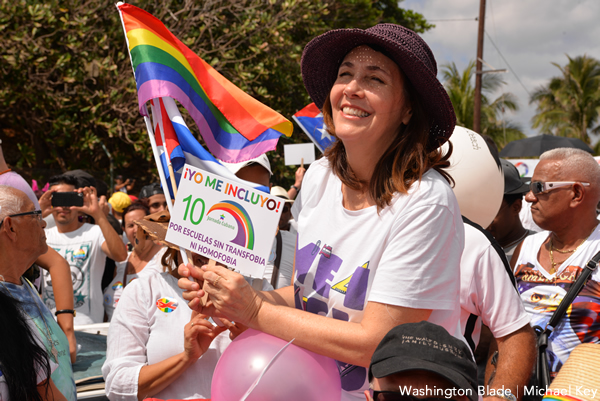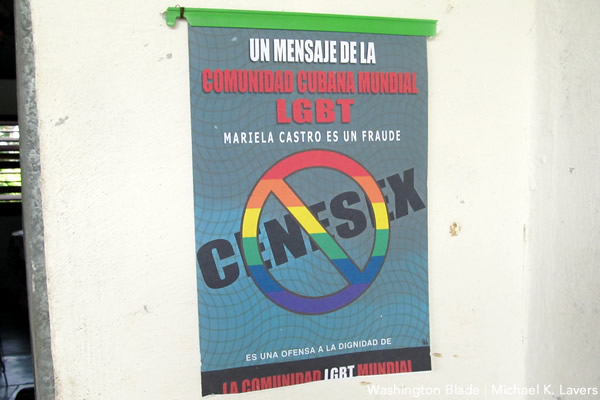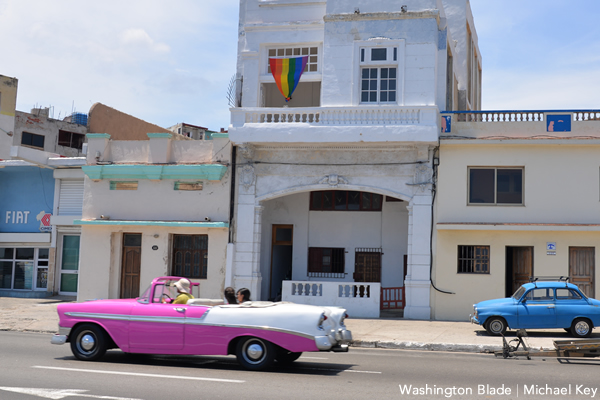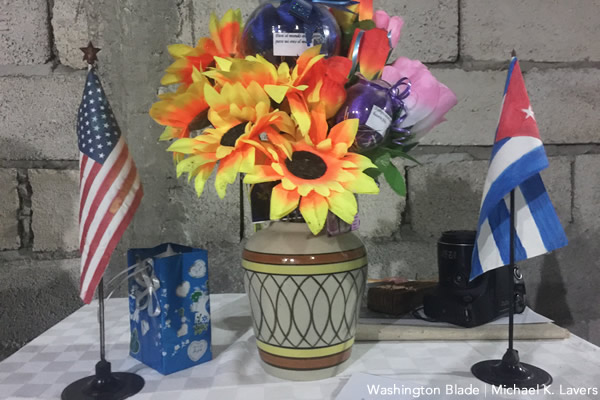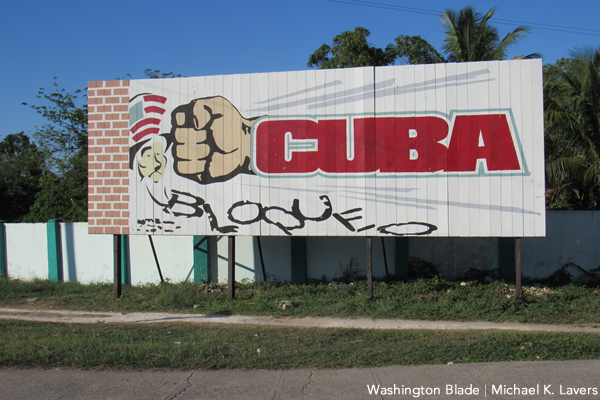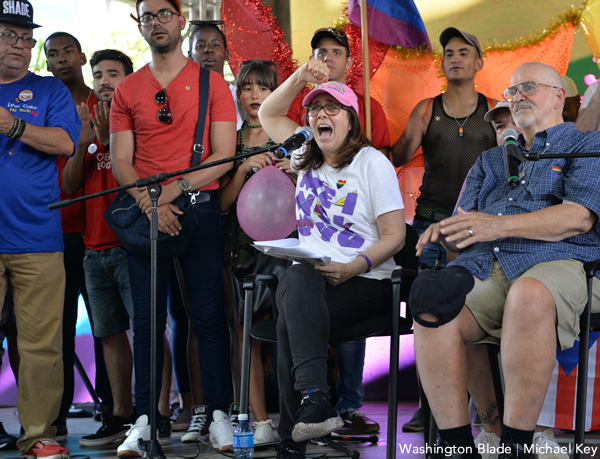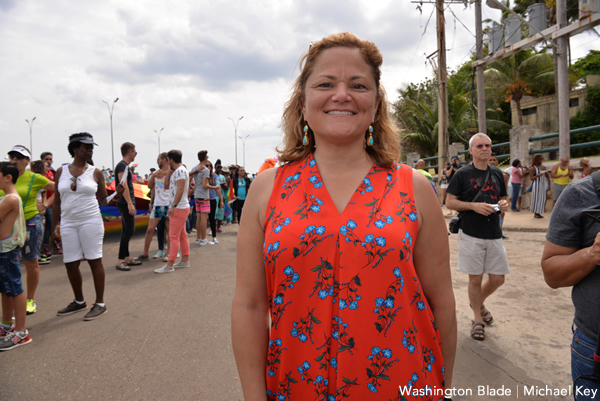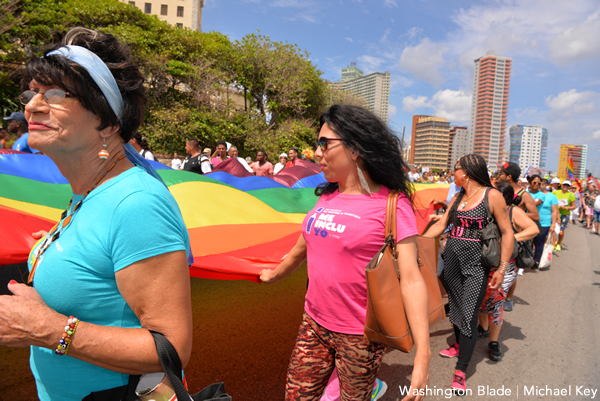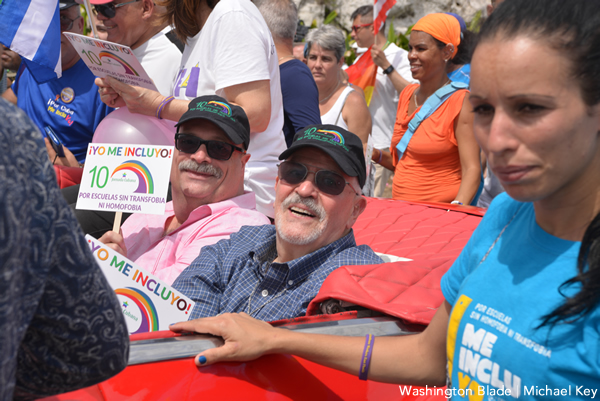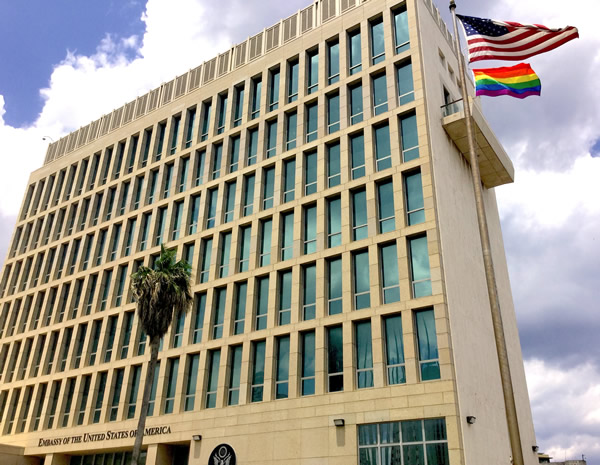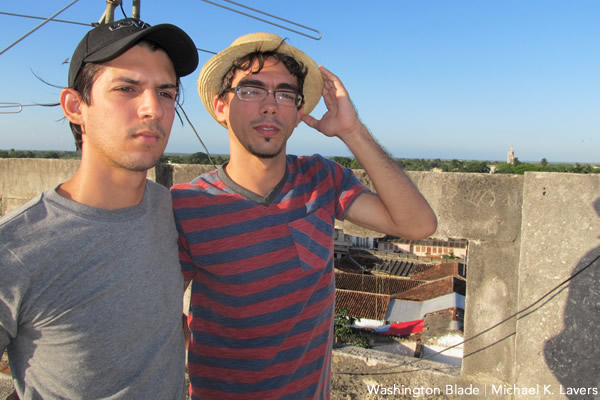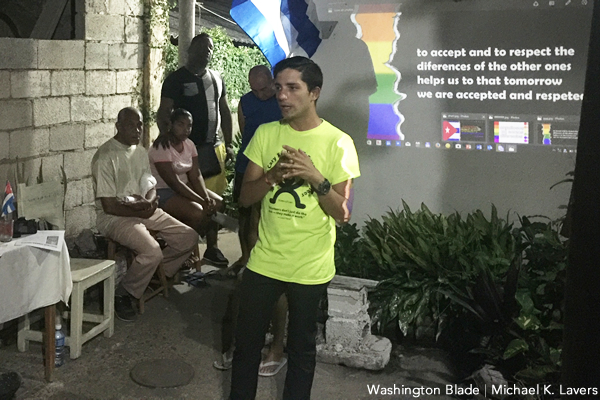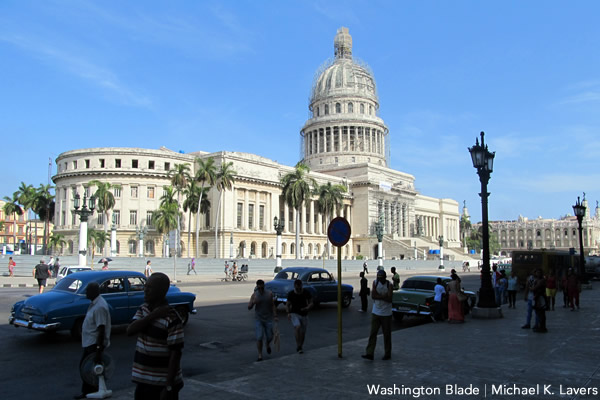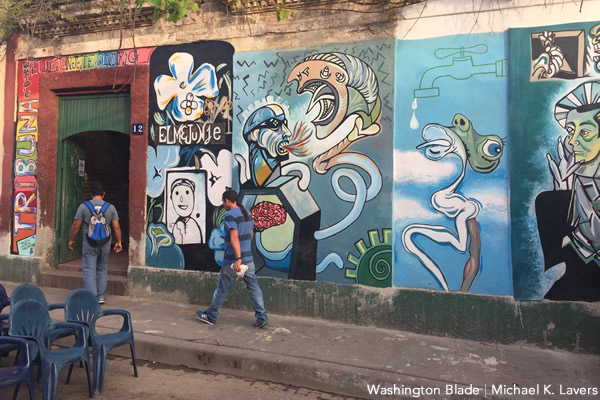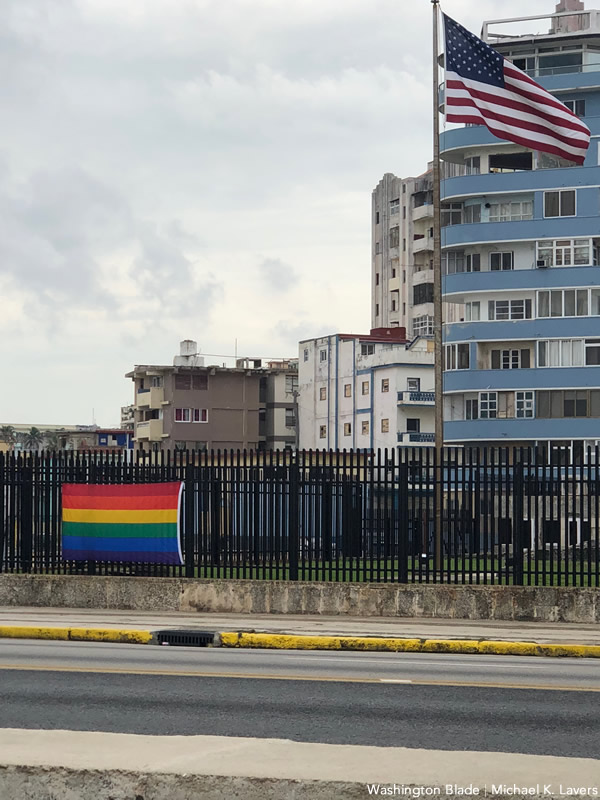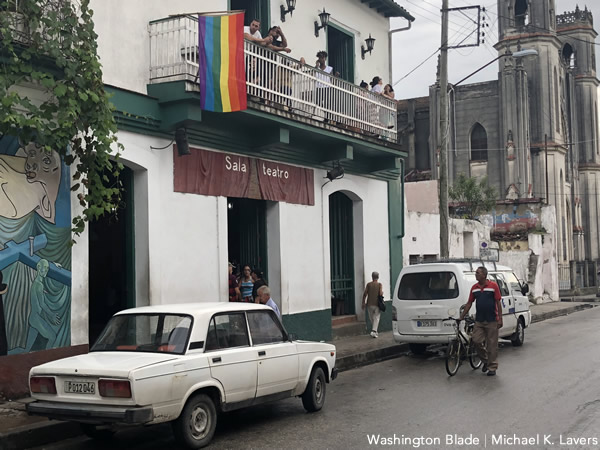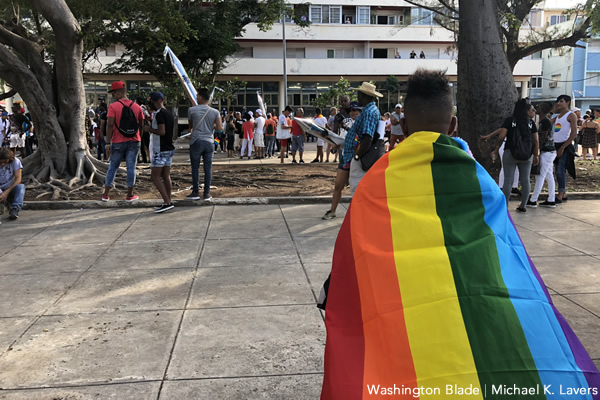
A Soviet-era Lada parked on the beach in Caibarién, Cuba, on May 18, 2017. (Washington Blade photo by Michael K. Lavers)
CAIBARIÉN Cuba — Caibarién is a town on a bay that separates it from Cayo de Santa María, which is located on Cuba’s northern coast. It’s proximity to the city of Santa Clara, which is less than an hour to the south, provided the perfect place to escape “experiencing Cuba” and all that it entails — including a flat tire and dead battery on my rental car on Thursday morning — before returning to the U.S.
The breeze that was blowing off the bay was refreshing. The fish at La Tormenta, a small restaurant on Caibarién’s beach that means “the storm” in Spanish, that I had for lunch was freshly caught and delicious. There were also no visible Cuban police officers or security agents within sight.
It became increasingly clear over the last couple of days the Cuban government decided to place me under surveillance, or at the very least knew where I was and with whom I spoke. The Cuban government will likely never confirm my suspicion if I were to ask, but coincidence is more than simple coincidence in a country with little tolerance of public criticism of the government and/or those who represent it.
Tuesday afternoon was the first time I realized the Cuban government may have decided to place me under surveillance.
I called Nelson Gandulla, president of the Cuban Federation of LGBTI Rights, an independent LGBT advocacy group, shortly after noon from the street to confirm our meeting at his home in the city of Cienfuegos that we scheduled for 3 p.m. I called Nelson from the cell phone that I bought from the state-run telecommunications company shortly after I arrived in Cuba on May 2. The conversation lasted less than two minutes and I walked back to the apartment near Santa Clara’s Parque Leoncio Vidal that I had rented on Airbnb from D.C.
I was leaving around 2 p.m. when the woman from whom I was renting the apartment told me someone from the Cuban Ministry of Foreign Affairs called and asked her whether I was a credentialed journalist. The Cuban government granted me a 20-day visa that allowed me to report on LGBT-specific issues in the country. I also received a Cuban press credential from the Ministry of Foreign Affairs’ International Press Center in Havana.
The situation clearly left the woman from whom I rented the apartment embarrassed, and I honestly felt bad the government had placed her into such an awkward position. She profusely apologized to me several times after I showed her my Cuban press credentials and assured me that I would not have any problems while staying in her family’s home. I left a few minutes later and walked to my car that was parked a couple of blocks away.
Police checked documents after interviewing activist
The hour-long drive from Santa Clara to Cienfuegos, which is on Cuba’s southern coast, was largely uneventful aside from getting lost while leaving the area around Parque Leoncio Vidal. Driving anywhere in the country is another one of those “experiencing Cuba” moments that can certainly leave a lasting impression.
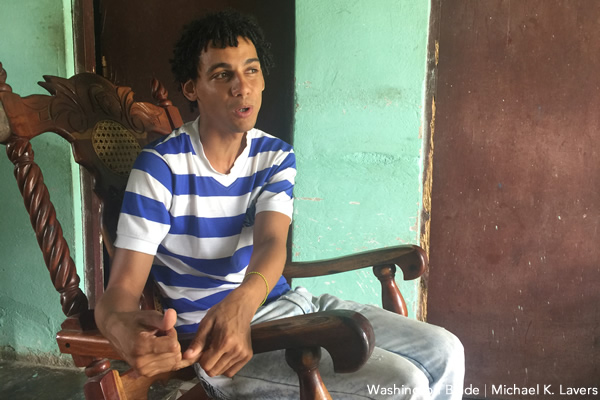
Cuban Federation for LGBTI Rights President Nelson Gandulla speaks to the Washington Blade at his home in Cienfuegos, Cuba, on May 16, 2017. (Washington Blade photo by Michael K. Lavers)
Nelson, who is a doctor, was alone. The only interruptions during our nearly hour-long interview were a handful of telephone calls and a woman who asked him to write her a prescription. Nelson casually pointed out two security agents who passed by his house as he sat in an old wooden rocking chair with his front door open.
The soldiers that I had seen at the intersection when I drove to Nelson’s house were not there when I passed it shortly after 4:30 p.m. Men wearing military uniforms were among local residents as I drove through Cienfuegos, but they are a common sight in Cuba.
I parked alongside a square in Palmira, a town that is roughly 15 minutes north of Cienfuegos, shortly after 5 p.m. to check my email on a public hotspot. One must use cards from the state-run telecommunications company to access it. I sent a couple of emails and texts about my interview with Nelson and started driving again after about 15 minutes.
I was driving through a town near the border of Cienfuegos and Villa Clara Provinces less than 15 minutes later when a police officer on a motorcycle pulled me over. He asked me to where I was driving — Santa Clara I told him — and requested my documents — passport, visa, driver’s license and Cuban press credentials — that I politely and calmly handed to him. The officer took them and walked over to his motorcycle. He spoke to someone over the radio before writing something down on a piece of paper. The officer walked back to my car a few minutes later, handed my documents back to me and said that I could leave.

The border between Villa Clara and Cienfuegos Provinces in Cuba on May 16, 2017. (Washington Blade photo by Michael K. Lavers)
Back in Santa Clara, I began to notice a white police car (patrulla in Cuban Spanish) that was parked near the corner of Parque Leoncio Vidal that was closest to my apartment. I took particular note of its location in the morning and at night when I walked to the park to check my email on a public hotspot.
Coincidence?
I’m a curious and somewhat defiant person, so I decided to stare into police officers’ eyes on Wednesday when I saw them. It was an admittedly self-serving attempt to convince myself that they know that I know the government decided to place me under surveillance.
A white patrol car was once again parked along the edge of Parque Leoncio Vidal that was closest to my apartment on early Thursday morning when I was walking home from a party that Mariela Castro’s organization, the National Center for Sexual Education, organized as part of its International Day Against Homophobia and Transphobia commemorations. There were two officers leaning on the car smoking cigarettes. I walked past them and said, “Good evening” to them in Spanish. They looked at me incredulously. I chuckled and called them “idiots” in Spanish under my breath as I walked home.
A white patrol car was parked in the same area on Thursday morning when I walked through the park to exchange some U.S. dollars into Cuban pesos at a government-owned currently exchange house. It was not there when I returned to my apartment about half an hour later.
The idea of “experiencing Cuba” during the 16 days that I was working in and traveling through the country will continue to evoke laughter, resignation, frustration and a variety of other emotions long after I have returned to D.C. The idea the Cuban government likely placed me under surveillance — however absurd the reason may have been — is a clear reminder the country’s human rights record remains a very serious problem that should not be ignored.

